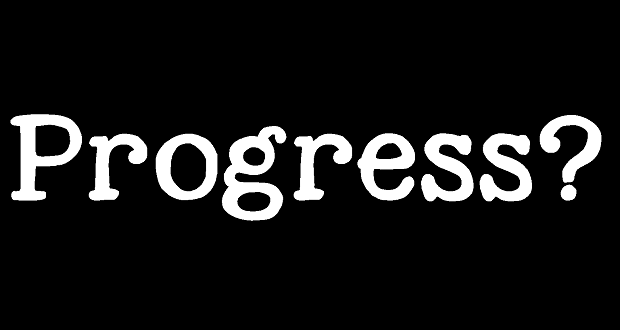
I was having a conversation with a colleague the other day around progress, and what it means in the context of diversity, inclusion, and equity in corporate spaces and society-at-large. I shared my frustrations with the dichotomies between the heightened interest in and emphasis on diversity and inclusion in the corporate world, and the pervasive climate of inequity and injustice that continues to exist in our society-at-large. My colleague asserted, “We’ve made progress, Brittany. And that is something to be happy about.”
But to be honest, the way my “whole self” is set up, I sometimes struggle with being happy or fully satisfied with things that “should be” anyway. That said, I am sometimes reluctant to label where we are as “progress.”
Certainly, diversity and inclusion as a practice has evolved. Some would argue that corporate diversity and inclusion is “in” right now. Everyone is doing it. A Forbes study found that 46 percent of senior executives strongly agreed that diversity and inclusion are crucial to driving innovation within their organizations. Another 37 percent somewhat agreed. Today, you could probably visit almost any organization’s website and find an expressed commitment to diversity, inclusion, cultural competence, or equity (different organizations call it different things). Some organizations are proving their commitment by appointing Heads of Diversity and Chief Diversity Officers, investing more in training, and even being more transparent in the work that needs to be done. Don’t get me wrong, I appreciate and see the value in all of this. In this context, perhaps this is “progress.”
At the same time, what about all that is happening beyond our organizations? I struggle with reconciling the aforementioned “progress” with, what seems to be, regression occurring right outside our corporate walls. When “politicians” are able to gain momentum on the grounds of racist, xenophobic, and Islamophobic rhetoric, I find it hard to declare we have made “progress.” When communities and children of color are systematically poisoned without anyone being held accountable, “progress” just doesn’t seem like the appropriate word. When the convenient solution to addressing racial inequities is still to deny they even exist, I find it hard to declare “progress.”
I think we can agree that organizations do not exist within a vacuum, and are merely part of a much broader system. So, have we truly made progress? Perhaps, we have? Or maybe “progress” is the wrong word. I find Malcolm X’s thoughts interesting, and to some degree, still relevant:
“If you stick a knife nine inches into my back and pull it out three inches; that is not progress. Even if you pull it all the way out, that is not progress. Progress is healing the wound, and America hasn’t even begun to pull out the knife. They won’t even admit the knife is there.” -Malcolm X, 1964


















